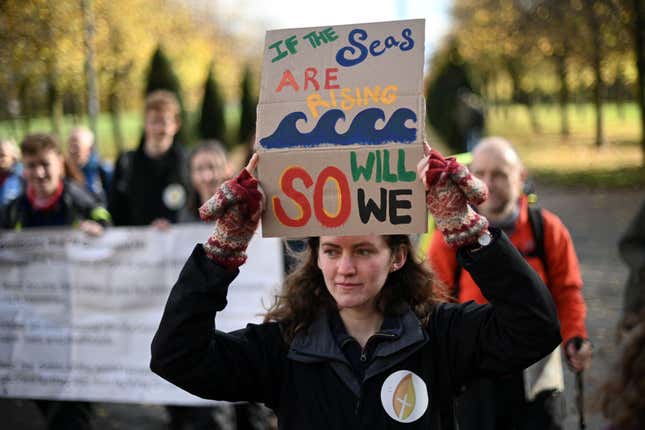Here’s Another Way Climate Change Is Gender-Based Crisis
14 million women are at risk of losing contraception due to climate-related displacement.
AbortionPolitics

Climate change and reproductive rights are thought of as separate and distinct issues, but they’re more interrelated than people realize: An estimated 14 million women and girls are at risk of losing access to contraception and other options to control their health in the next decade because of climate-related disruptions, according to a new analysis from international reproductive health organization MSI Reproductive Choices.
Since 2011, about 11.5 million women in 26 countries at least temporarily lost contraception access because of climate change-related displacement, like being forced to migrate after climate change effects destroyed their homes. The modeling by MSI Reproductive Choices used data from countries across Asia, South America, Oceania, and Africa: Afghanistan, Bangladesh, Bolivia, Burkina Faso, Democratic Republic of the Congo, Ethiopia, Ghana, India, Kenya, Madagascar, Mali, Malawi, Myanmar, Nepal, Niger, Nigeria, Pakistan, Papua New Guinea, Timor-Leste, Senegal, Sierra Leone, Tanzania, Uganda, Yemen, Zambia, and Zimbabwe.
-

-

-

-

-

-

-

-

-

-

-

-

-

-

-

-

-

-

-

-

-

-

-

-

-

-

-

-

-

-

-

-

-

-

-

-

-

-

-

-








































